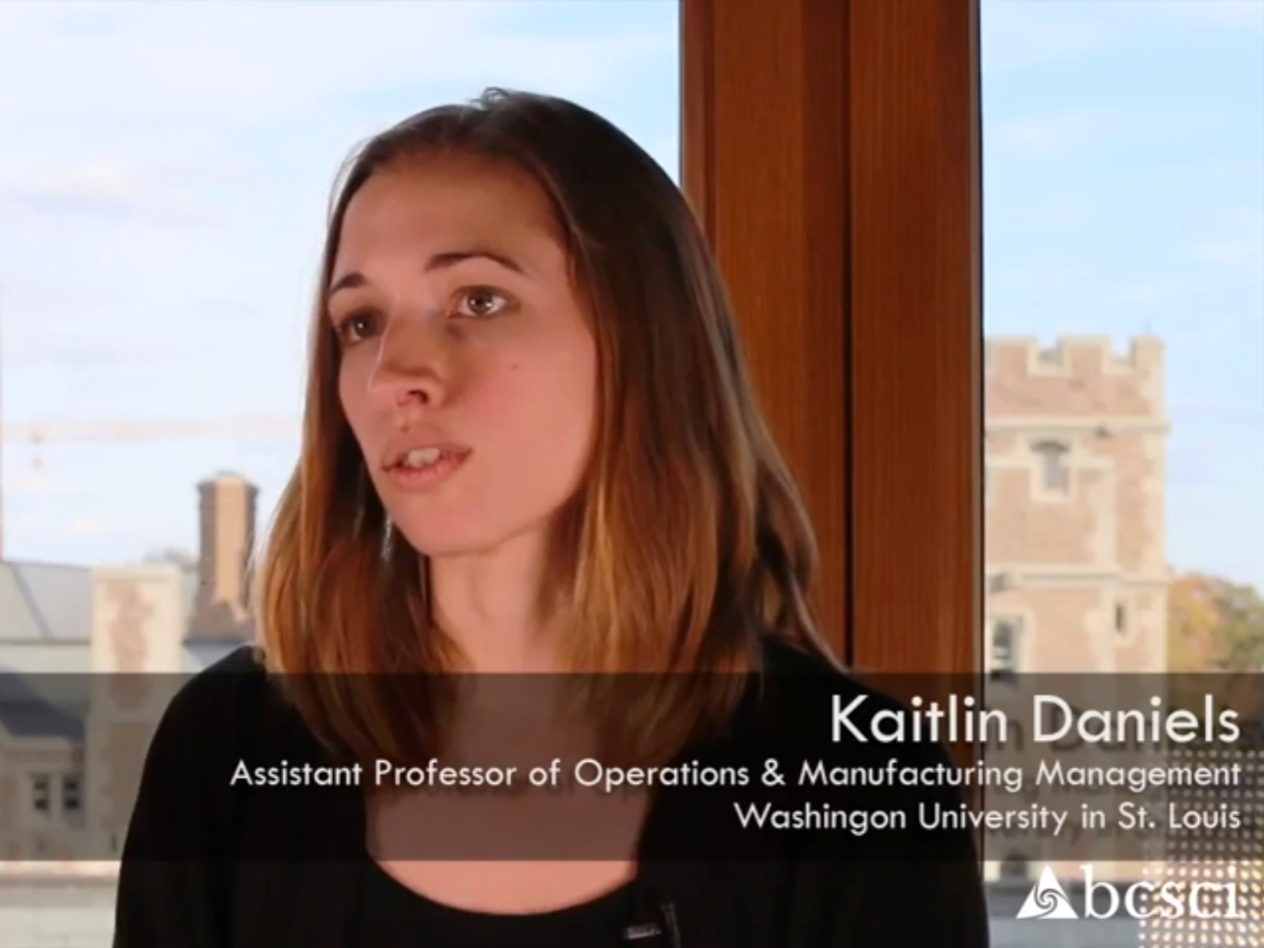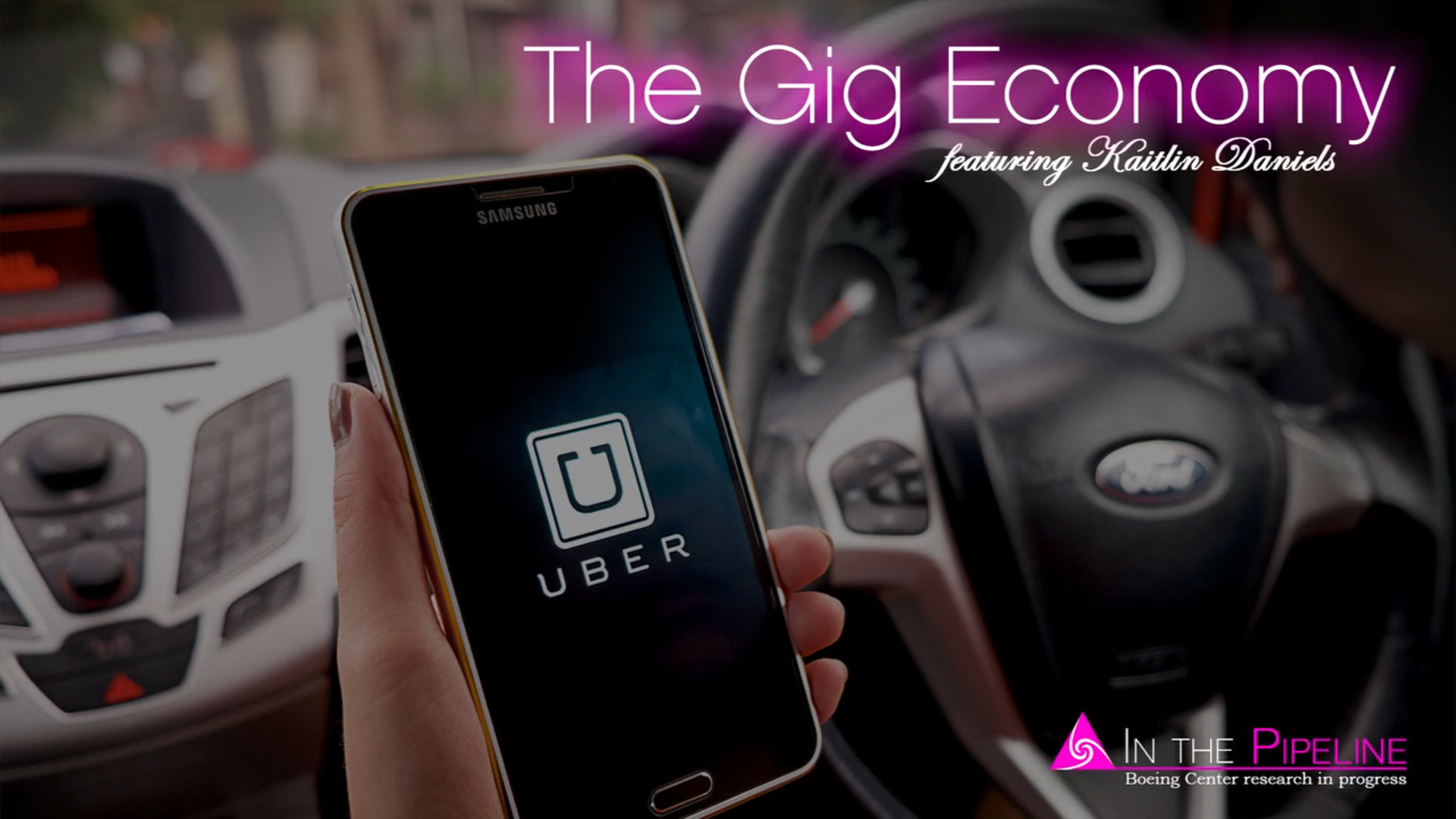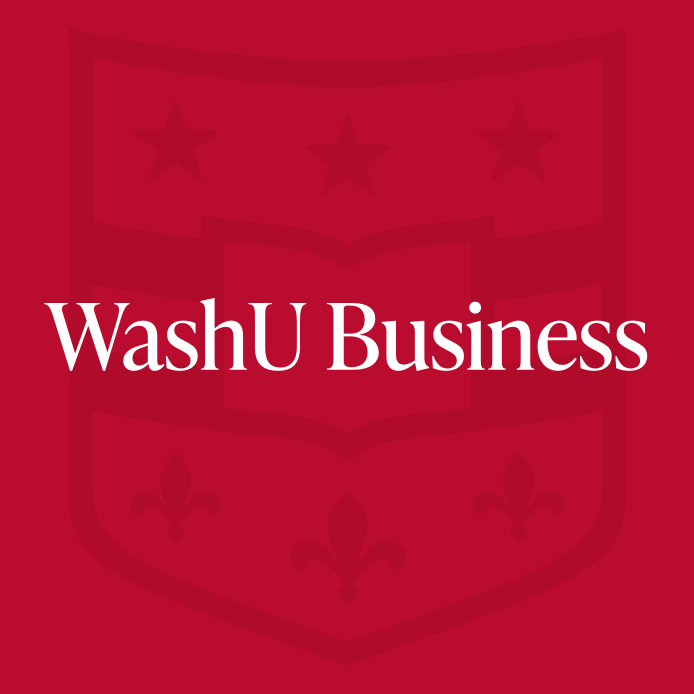Incentivizing employees in the gig economy
- January 15, 2018
- By WashU Olin Business School
- 2 minute read

The following was submitted by WashU Olin's Boeing Center for Supply Chain Innovation.
In this installment of The Boeing Center’s In the Pipeline, Kaitlin Daniels, assistant professor of operations & manufacturing management, shares some motivation for her recent research on the “gig economy,” which engages contract workers for short-term work. A perfect example of a gig economy is Uber.
Daniels is particularly interested in the operational challenges companies face in the gig economy. Gig economy workers get to decide when, where, and how long they will work, in contrast to the traditional employment arrangement, where the firm directly controls its workers’ shifts. Daniels focuses particularly on the incentives offered by gig economy firms, and the policy implications of those incentives.
Another area of focus in Daniels’ research is surge pricing, or the increase in cost to consumers during times of high demand. While she notes that surge pricing certainly improves Uber’s profitability, she wonders if the practice is actually better for consumers. Daniels is also interested in driver welfare. “There has been a lot of talk recently about how to ensure that drivers or gig economy workers are ensured some base level of welfare in the same way that we protect employees,” Daniels said. As interest and opportunity in the gig economy rises, research on the topic will become increasingly important.
In the Pipeline is a Boeing Center digital series that highlights in-progress academic research in the fields of supply chain, risk management, and operational excellence. It features professors from Washington University’s Olin Business School, and demonstrates The Boeing Center’s ongoing pursuit of cutting-edge research and knowledge dissemination.
The Gig Economy
Kaitlin Daniels shares some motivation for her recent research on the "gig economy" (e.g., Uber).
Media inquiries
For assistance with media inquiries and to find faculty experts, please contact Washington University Marketing & Communications.
Monday–Friday, 8:30 to 5 p.m.
Sara Savat
Senior News Director, Business and Social Sciences

